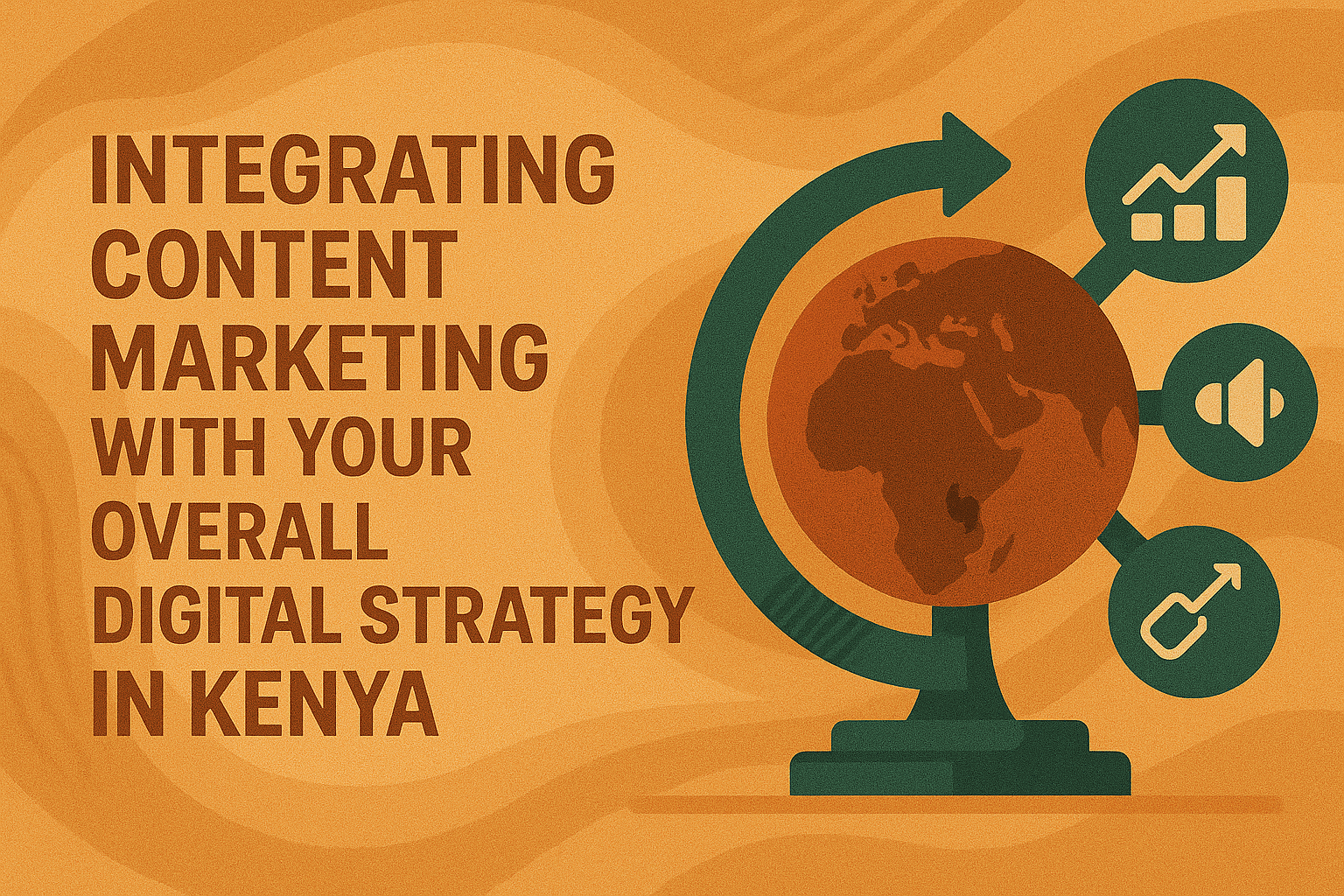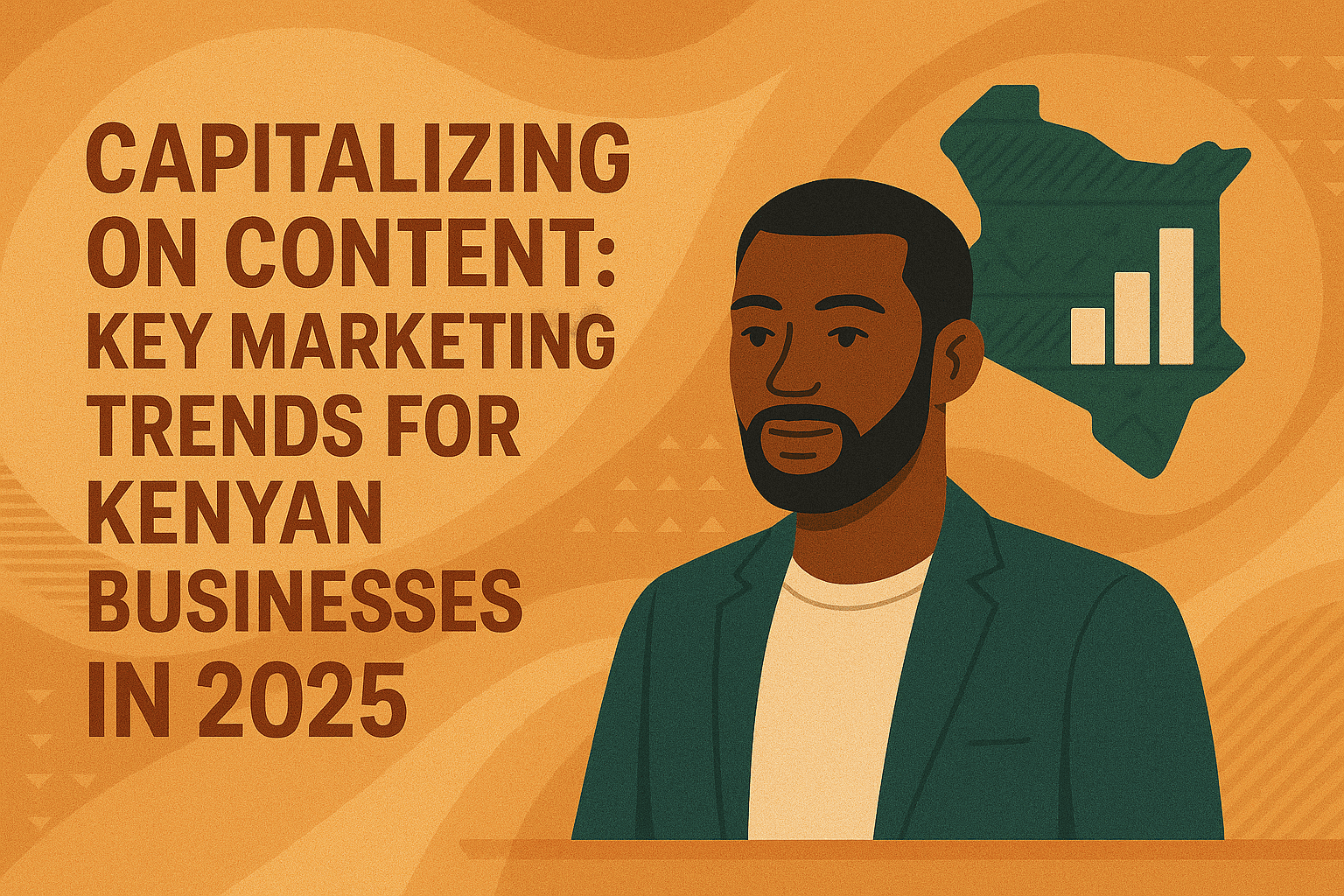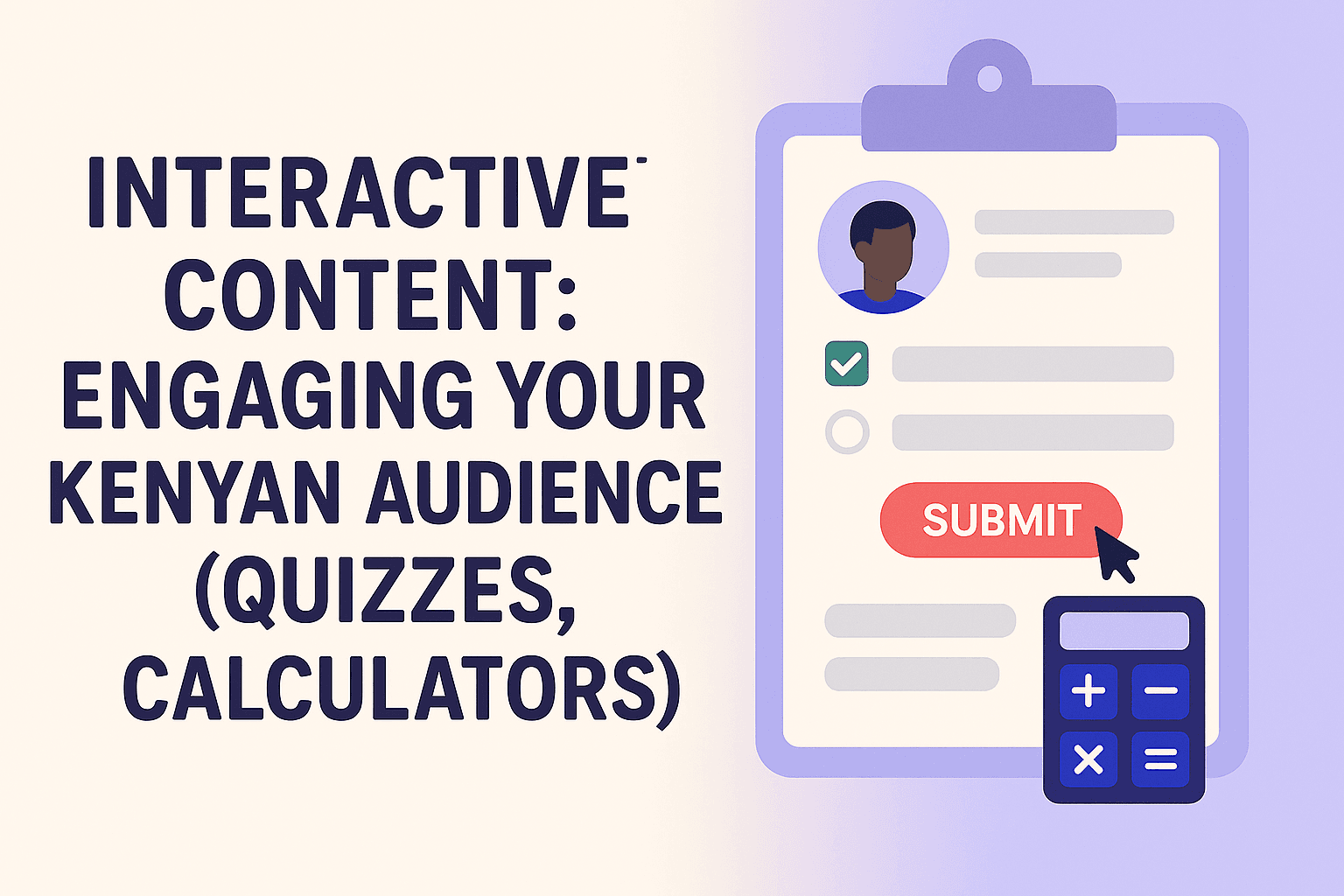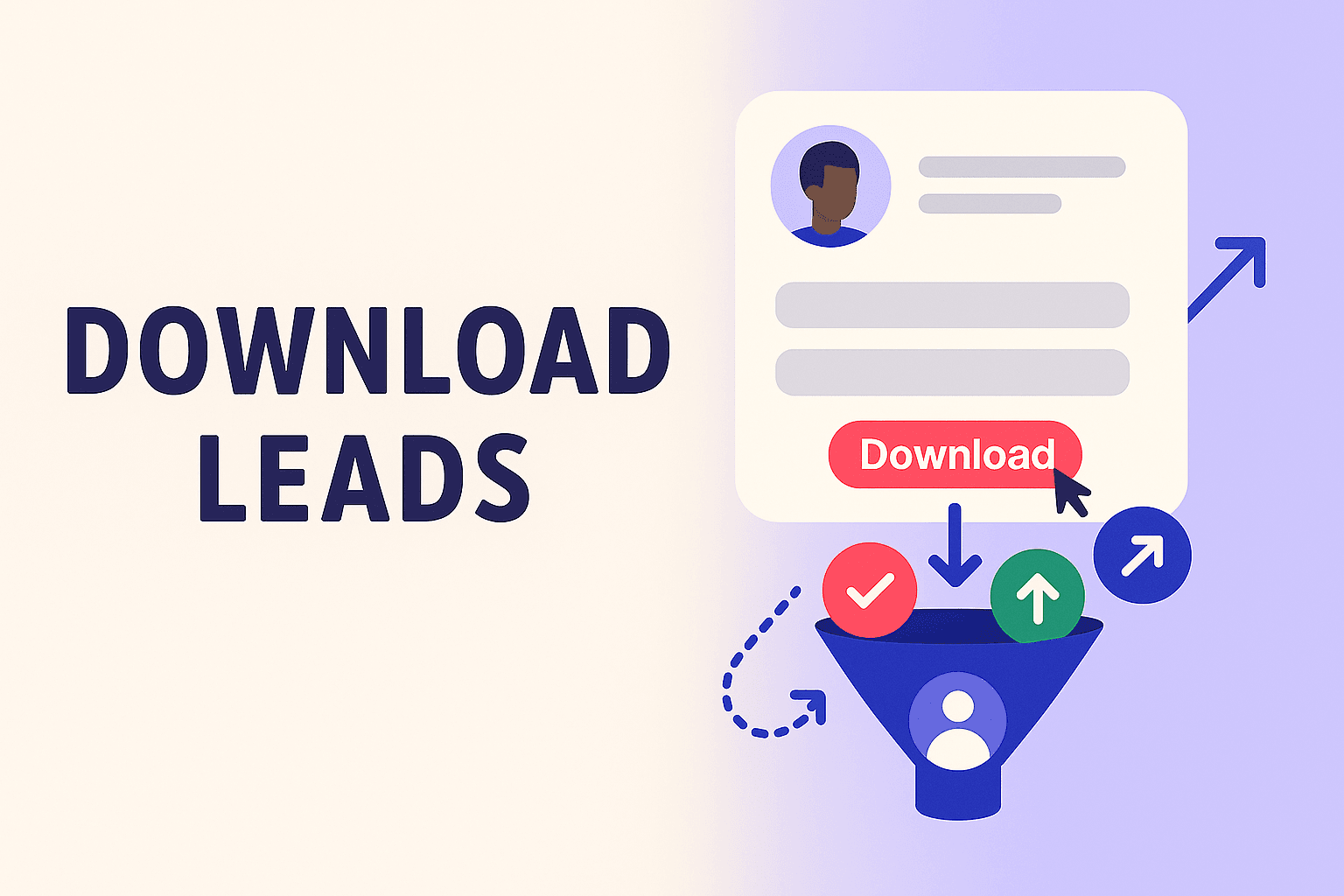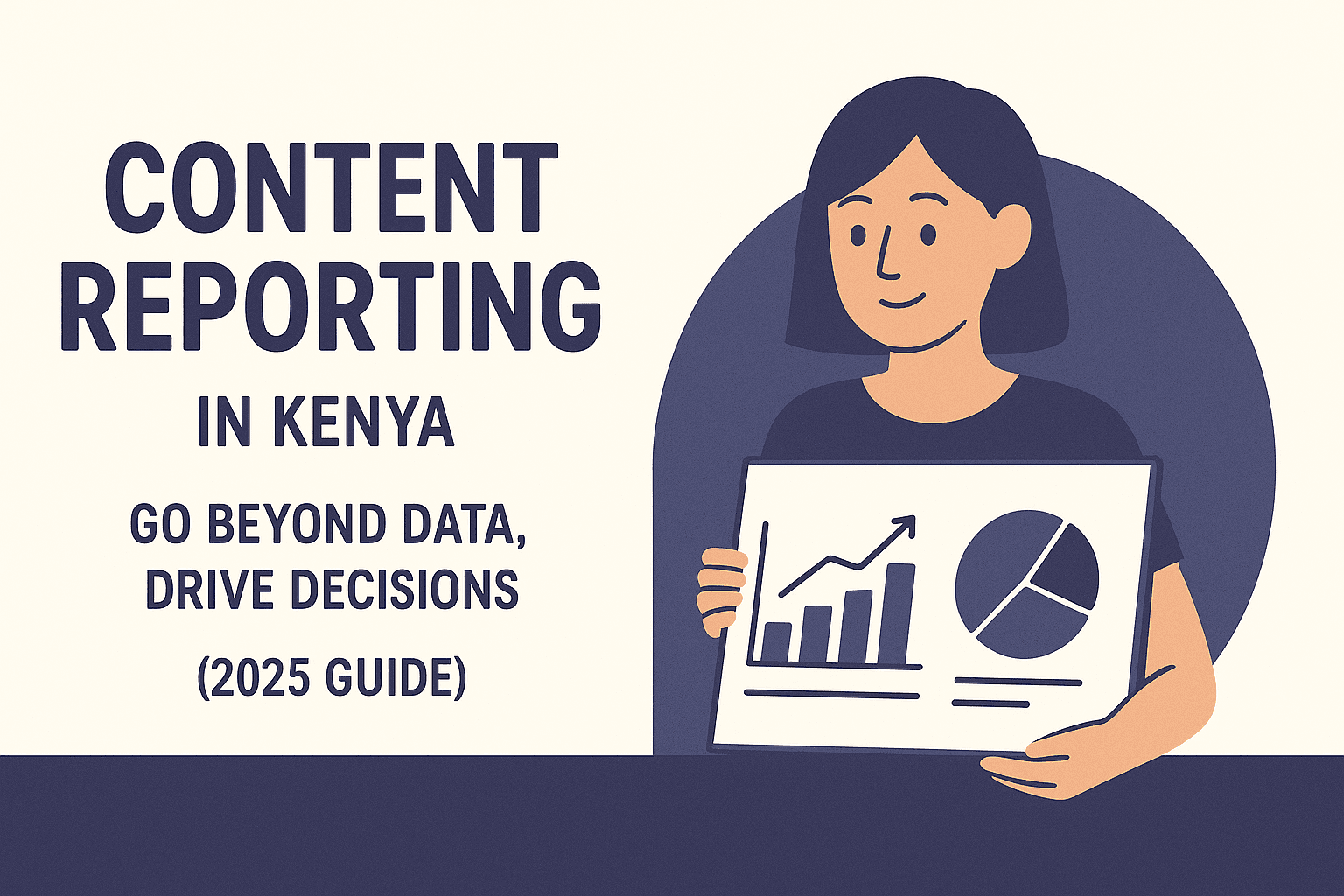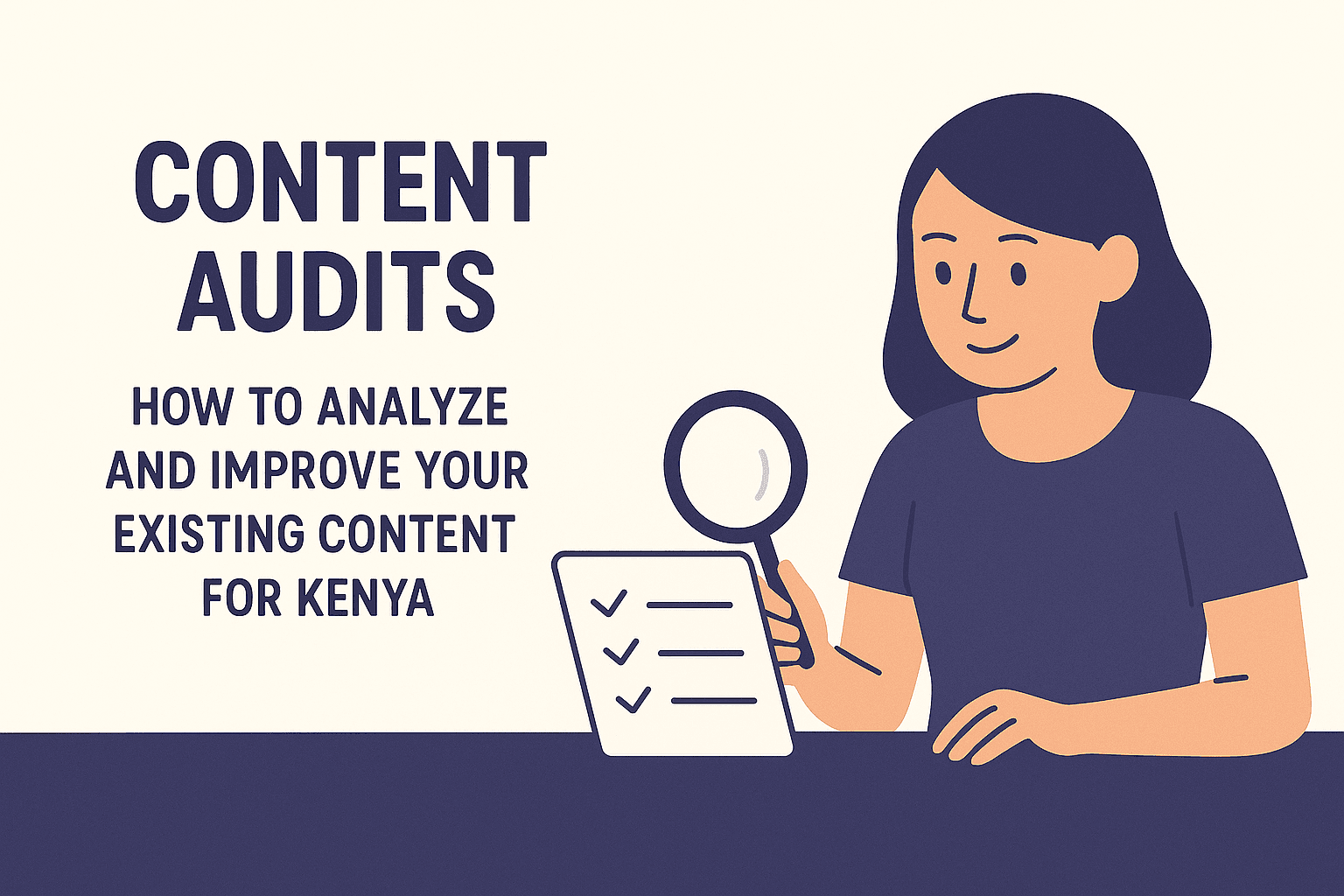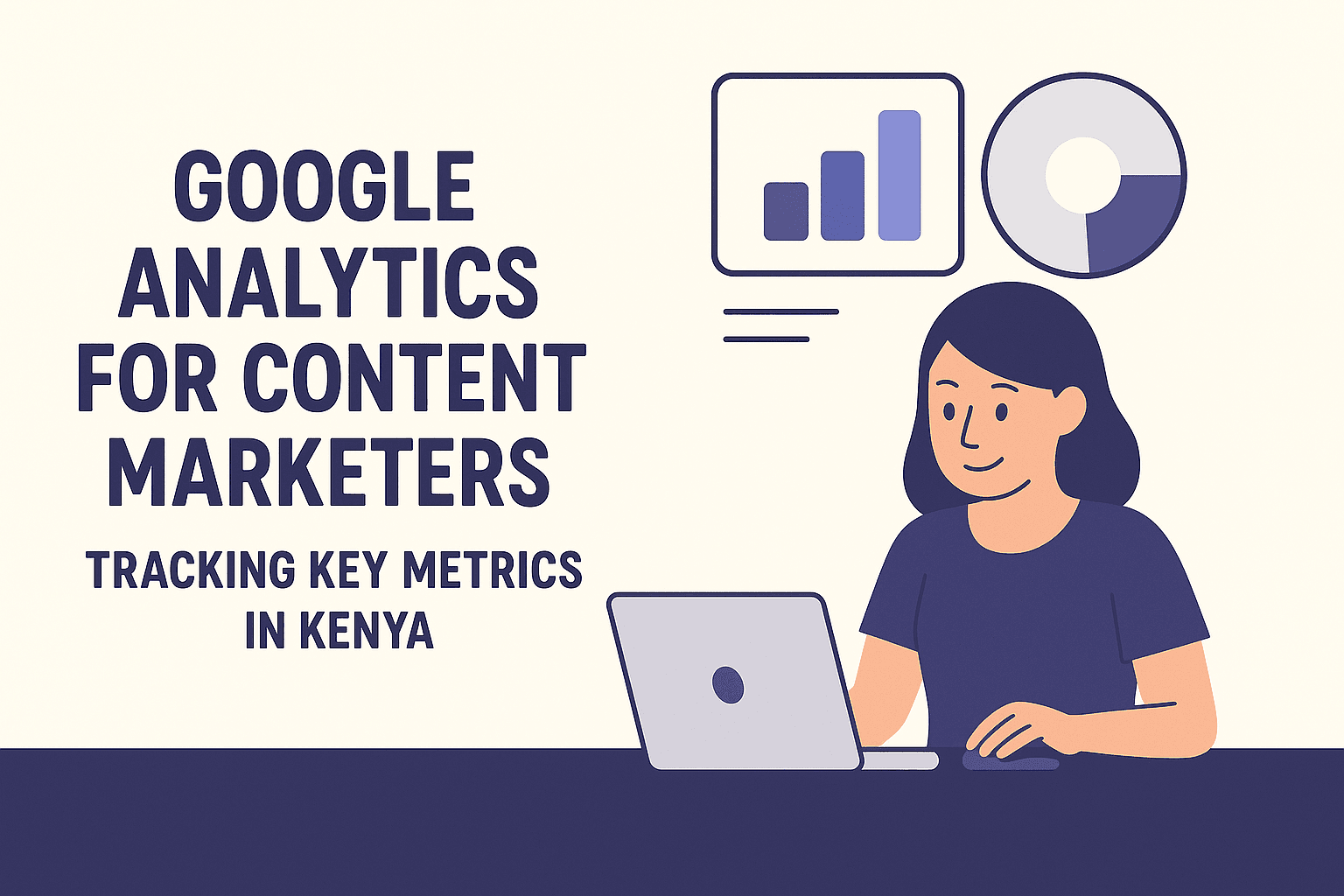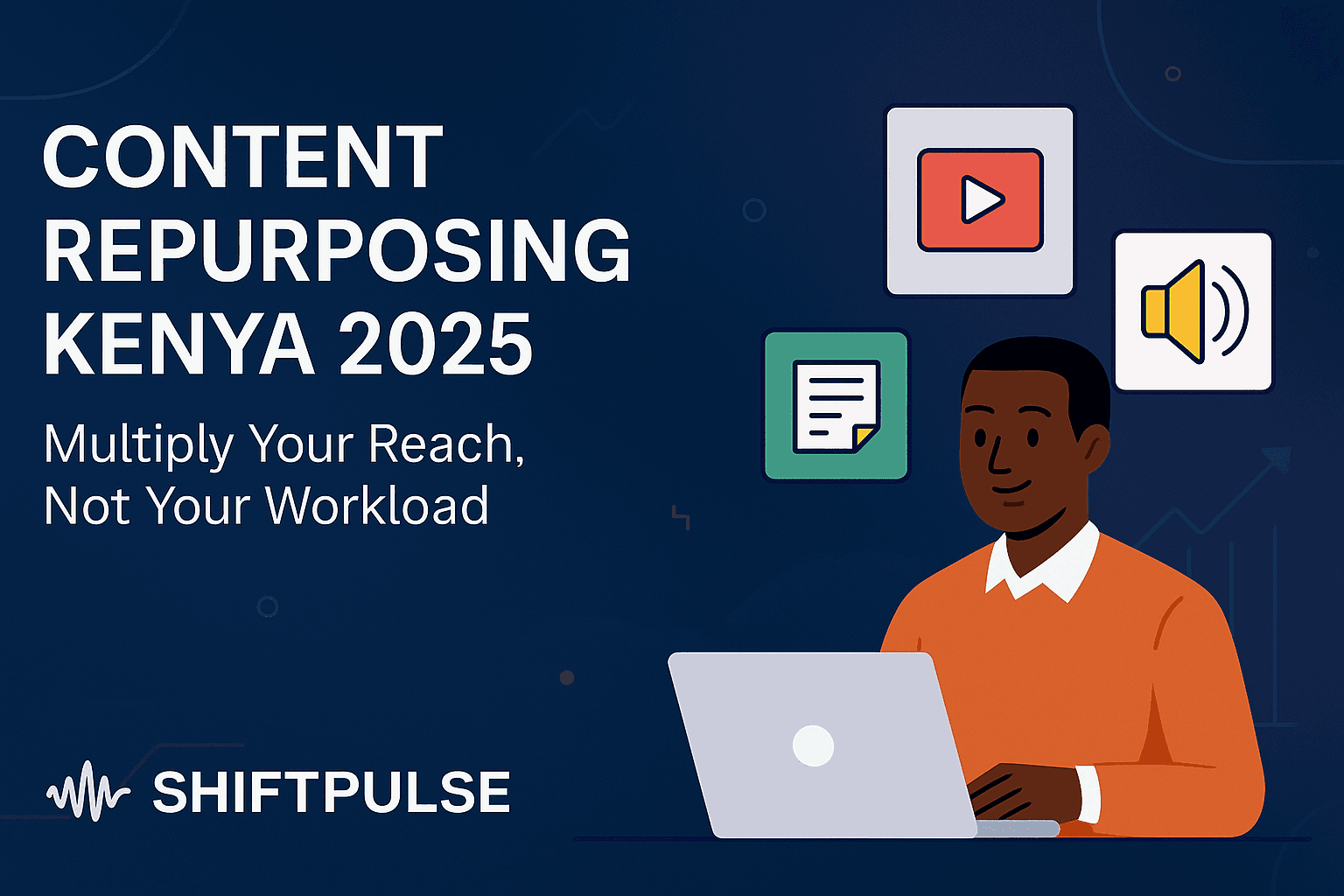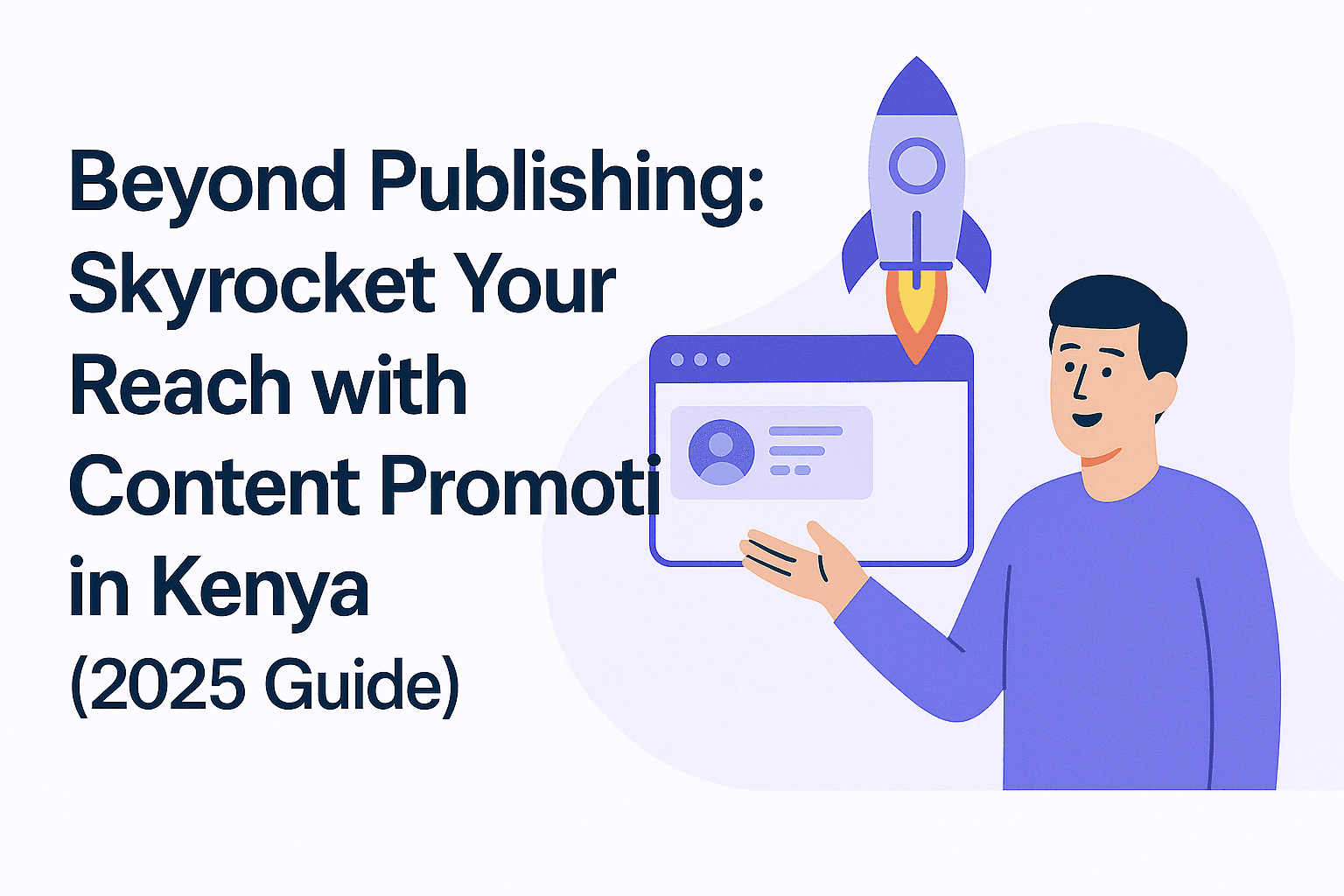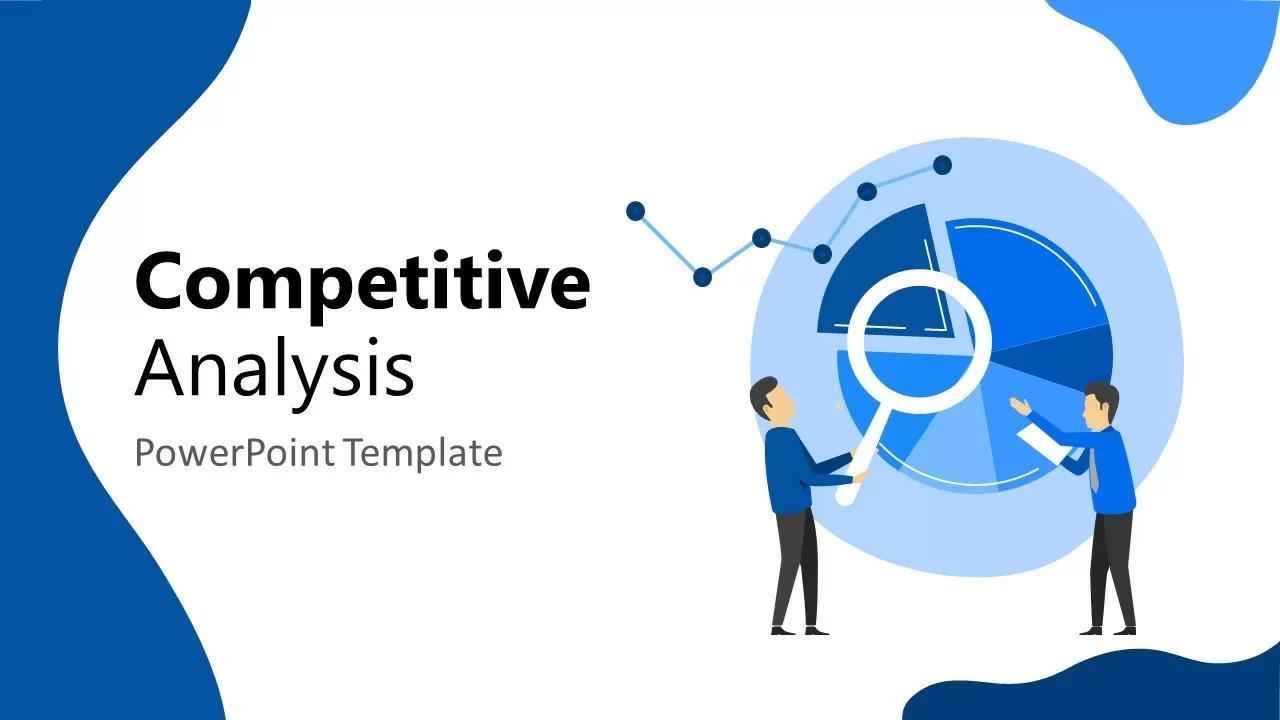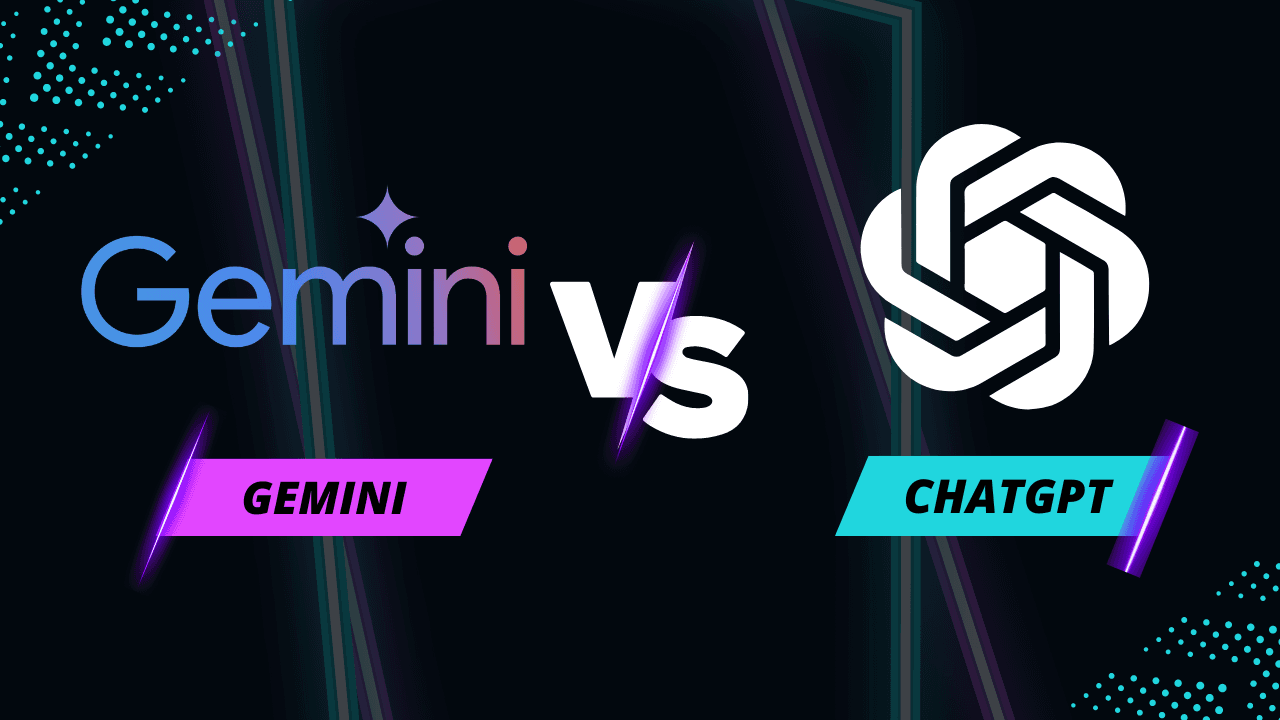
Ken Kariuki
Shiftpulse Marketers
Investing in Content Marketing in Kenya? Prove Its Value.
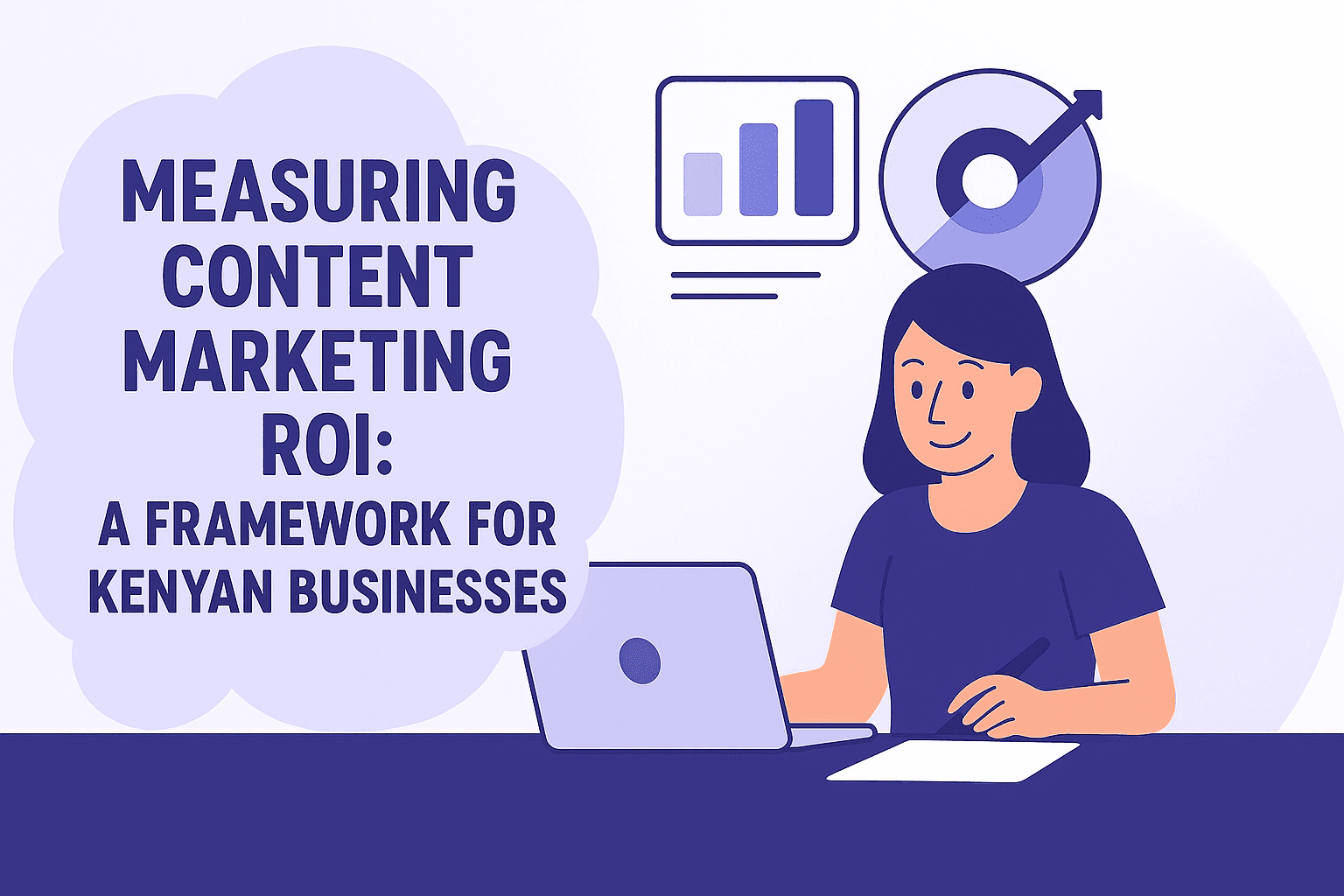
TL;DR: Measuring Content Marketing ROI in Kenya requires setting clear goals, tracking costs accurately, and leveraging analytics tools like GA4, UTM parameters, and CRM systems. Attribution challenges—especially with M-Pesa transactions—can be solved through integrated e-commerce tracking or manual reconciliation methods using Paybill IDs.
Investing in Content Marketing in Kenya? Prove Its Value.
You're creating great content – blog posts, videos, social updates – to connect with your Kenyan audience. But when budget time comes, can you definitively show the return on that investment? Or does measuring Content Marketing ROI feel like a complex puzzle, especially with unique Kenyan factors like M-Pesa payments?
You're not alone. Many businesses struggle to connect their content efforts directly to the bottom line. Yet, understanding your Content Marketing ROI is crucial. It justifies your budget, shows what's working (and what's not), helps optimize your strategy, and ultimately proves the value your content delivers.
This practical ShiftPulse guide is designed specifically for Kenyan businesses. We'll walk you through a step-by-step framework to:
- Set clear, measurable content goals.
- Accurately track the true costs of your content.
- Implement essential tracking tools (even free ones!).
- Tackle the challenge of attributing revenue, including M-Pesa transactions.
- Calculate your ROI and understand what it means.
- Demonstrate value even when direct revenue tracking is tough.
Stop guessing your content's impact. Let's build a measurement framework that gives you clarity and confidence.
Why Measuring Content ROI is Critical in Kenya
In Kenya's dynamic, mobile-first digital space, content marketing is powerful, but resources are valuable. Measuring ROI helps you:
- Justify Your Budget: Show decision-makers how content contributes to revenue.
- Optimize Your Strategy: Identify which content types, topics, and channels deliver the best results.
- Improve Efficiency: Allocate resources effectively, focusing on high-impact activities.
- Secure Buy-in: Build confidence and support for your content marketing initiatives.
The Kenyan Context: High mobile penetration (~72.6% smartphone penetration) and the dominance of platforms like Google, Facebook, YouTube, TikTok, and crucially, M-Pesa, shape how Kenyans interact and transact online. Your measurement strategy must account for this reality.
Step 1: Define Your Goals (Know What Success Looks Like)
Before measuring, define clear, SMART objectives for your content marketing:
- Specific: What exactly do you want to achieve? (e.g., "Increase qualified leads from our blog")
- Measurable: How will you track progress? (e.g., "...by 50 leads per month")
- Attainable: Is the goal realistic given your resources?
- Relevant: Does it align with overall business goals? (e.g., "...to support sales growth")
- Time-bound: By when? (e.g., "...within the next 6 months")
Kenyan Example: "Generate 100 MQLs (Marketing Qualified Leads) from our 'Kenyan SME Finance Guide' ebook download within Q3 2025."
Step 2: Track Your Costs (The Full Picture)
Calculating ROI requires knowing your total investment. Don't just count ad spend! Include:
- Content Creation:
- Labour: Staff salaries/freelancer fees (writers, designers, video producers).
- Tools: Software subscriptions (Canva, Adobe Suite, SEO tools like SEMrush).
- Stock Assets: Images, video clips, music licenses.
- Content Distribution:
- Paid Promotion: Google Ads, Meta Ads, LinkedIn Ads spend.
- Tools: Social media scheduling tools (Buffer, Hootsuite), Email marketing platforms (Mailchimp, Zoho).
- Labour: Staff time spent managing distribution/promotion.
ShiftPulse Voice: Track costs diligently using spreadsheets or expense tools. Underestimating costs leads to inflated ROI figures.
Step 3: Set Up Your Tracking Tools (Tech Essentials for Kenya)
Technology is your friend in measurement. Focus on these essentials:
- Web Analytics (Google Analytics 4 - GA4):
- Why: It's FREE and powerful for tracking website traffic, user behaviour, goal completions (form fills, downloads), and e-commerce sales.
- Action: Install GA4 on your website. Set up Goals for key actions. Implement E-commerce tracking if you sell online. [Link to: /analytics-and-convertion-rate-optimization]
- UTM Parameters (Non-Negotiable!):
- Why: These are tags you add to links in your emails, social posts, ads, etc. They tell GA4 exactly where your traffic came from (e.g., Facebook campaign vs. email newsletter). Crucial for attribution!
- Action: Use Google's Campaign URL Builder or a spreadsheet to create consistent UTMs for all external links pointing to your site. (utm_source, utm_medium, utm_campaign are key).
- Customer Relationship Management (CRM) System:
- Why: Tracks leads from initial contact (often via a content download form) through the sales process to becoming a customer. Essential for linking content to final revenue.
- Action: Implement a CRM. Many offer FREE tiers perfect for Kenyan SMEs (e.g., HubSpot Free CRM, Zoho Free CRM). Integrate your website forms with your CRM to capture lead source (UTM) data automatically. Bonus: Zoho Invoice offers direct M-Pesa integration.
ShiftPulse Voice: These tools form your measurement foundation. Start with the free options – they offer immense value.
Step 4: Attribute Revenue (Tackling the M-Pesa Challenge)
This is often the trickiest part in Kenya: linking a customer's payment (especially via M-Pesa) back to the content that influenced them.
The Challenge: A user might read your blog (tracked via UTMs in GA4), fill a contact form (captured in CRM with source data), but then pay later using the M-Pesa app or USSD, breaking the direct digital tracking link.
Practical Solutions for Kenyan Businesses:
Integrated E-commerce + M-Pesa Gateway:
- How: Use platforms like Shopify with M-Pesa gateways (IntaSend, Pesapal etc.).
- Result: Transaction data (including revenue) can be automatically passed to GA4 via e-commerce tracking, linking payment to the tracked user session. (Easiest if feasible).
Manual / Semi-Automated Reconciliation (Common for SMEs):
- Step A: Capture Lead Source: When a user interacts (e.g., fills a form), capture their contact details (esp. Phone Number) AND their marketing source (UTM data via hidden form fields) into your CRM or spreadsheet.
- Step B: Get M-Pesa Records: Download your M-Pesa statements (Business Portal/App or *334#). These show transaction details including amount, timestamp, and the sender's phone number (usually).
- Step C: Match the Records:
- Matching via Phone Number: Compare the phone number on the M-Pesa statement to the phone numbers in your CRM/lead list. A match links the payment to the lead whose source you know. Caution: Phone number masking in some API responses can be a hurdle.
- Matching via Paybill Account Number (Recommended): If using Paybill, instruct customers to enter a unique identifier (like an invoice number or customer ID you provided) in the "Account Number" field when paying. Match this ID from the M-Pesa statement to your CRM/sales record. This is generally more reliable than phone matching.
- Till Numbers (Harder): Standard "Buy Goods" Till numbers usually lack an account number field, making matching rely mainly on phone number, amount, and timing.
- Tools: Your CRM is key for storing lead data. Explore API integrations (requires tech expertise) or tools like Zoho Invoice's direct M-Pesa link if applicable.
Attribution Models: Start simple. Use Last-Touch attribution (credit the last known marketing touchpoint before conversion, identified via UTMs) in GA4/CRM. Understand its limits (ignores earlier influences) but it's a practical starting point.
ShiftPulse Voice: Bridging the M-Pesa gap requires a clear process. Using Paybill with unique IDs is often the most reliable manual method for SMEs.
Step 5: Calculate Your Content ROI (The Moment of Truth)
Once you have attributed revenue (Step 4) and tracked costs (Step 2), use the formula:
ROI (%) = [ (Attributed Revenue - Total Content Costs) / Total Content Costs ] x 100%
Interpretation:
- Positive ROI (>0%): Your content marketing is profitable! An ROI of 400% (a 5:1 revenue-to-cost ratio) is often considered good.
- Negative ROI (<0%): Your costs currently outweigh the attributed revenue. Time to analyze and optimize your strategy.
Action: Calculate ROI regularly (monthly/quarterly). Benchmark against your own past performance – that's the most relevant comparison. Use ROI data to decide where to invest more and where to cut back.
Beyond Direct ROI: Demonstrating Hidden Value
Sometimes, precise ROI is hard to calculate, or content delivers value beyond immediate sales. Focus on these crucial alternative metrics:
- Lead Quality (More Important than Quantity!):
- Track Marketing Qualified Leads (MQLs) and Sales Qualified Leads (SQLs) generated by content campaigns within your CRM.
- Measure the Lead-to-Customer Conversion Rate for leads originating from content. High-quality leads convert better, proving content's value even if volume is lower.
- Brand Sentiment & Awareness:
- Monitor Brand Sentiment (positive/negative/neutral mentions) online using social listening tools or manual checks of comments/reviews. Is your content improving how people feel about your brand?
- Track Brand Awareness indicators:
- Increase in Branded Search Volume (Google Search Console).
- Growth in Direct Website Traffic (GA4).
- Rise in Social Media Followers/Reach.
- Increase in valuable Inbound Links.
ShiftPulse Voice: Especially given M-Pesa tracking challenges, highlighting improvements in Lead Quality and Brand Sentiment provides powerful proof of content marketing's long-term value to stakeholders.
Your Path to Data-Driven Content Marketing in Kenya
Measuring Content Marketing ROI in Kenya is achievable with a practical, adapted approach.
Key Takeaways:
Set SMART Goals: Define what success means upfront.
Track ALL Costs: Be meticulous.
Implement Tracking: Use GA4, UTMs, and a CRM (free options exist!).
Develop M-Pesa Strategy: Plan how you'll link payments (Paybill unique IDs recommended for manual).
Calculate ROI: Use the formula, benchmark internally.
Show Value Beyond ROI: Focus on Lead Quality and Brand Sentiment.
Analyze & Optimize: Use data to continuously improve.
Ready to stop guessing and start measuring the true impact of your content marketing in Kenya? ShiftPulse provides the expertise to implement this framework, set up tracking, analyze results, and optimize your strategy for maximum ROI.

